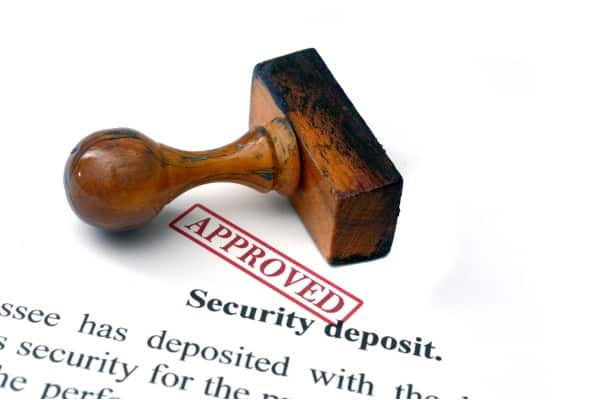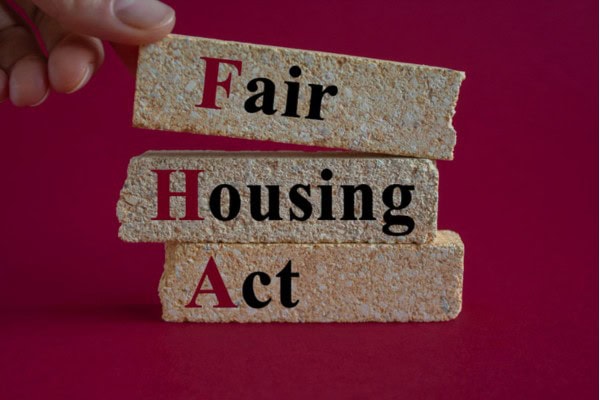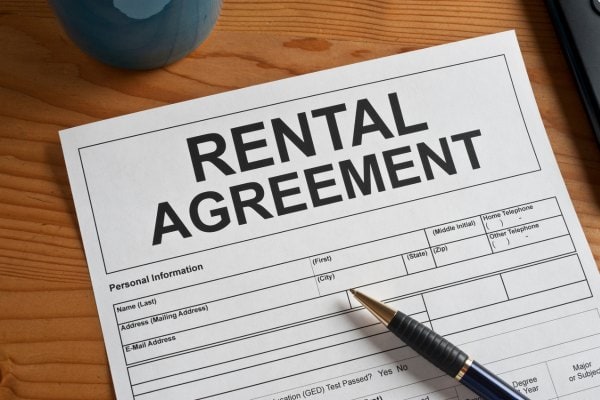North Carolina Landlord Tenant Law: What Tenants Must Know

Imagine renting an apartment, only to find your locks changed or your electricity cut without warning. Sounds illegal? It is. But unless you’re familiar with North Carolina landlord tenant law, you might not realize just how many lines a landlord can’t legally cross even in a state often labeled “landlord-friendly.”
Owning rental property in North Carolina gives you several rights, but it also comes with boundaries. These laws weren’t just written for courtrooms. They’re here to protect everyday people from power plays, shady tactics, and flat-out illegal behavior.
Whether you’re leasing a spare room or managing multiple units, one wrong move can trigger legal consequences and it doesn’t take a SQL command to uncover them.
Let’s get into what landlords are not allowed to do and why knowing the rules protects more than just rent.
Contents
- 1 North Carolina Landlord Tenant Law
- 1.1 1. A Landlord Cannot Evict an Active Duty Service Member
- 1.2 2. A Landlord Is Required to Follow Security Deposit Regulations
- 1.3 3. A Landlord Must Adhere to Legal Limits on Late Fees and Rent Collection
- 1.4 4. A Landlord Must Respect Tenant Privacy and Provide Proper Notice Before Entry
- 1.5 5. A Landlord Must Not Discriminate or Violate Fair Housing Laws
- 1.6 6. A Landlord Cannot Retaliate Against Tenants for Exercising Their Rights
- 1.7 7. A Landlord Is Required to Maintain Habitable and Safe Living Conditions
- 1.8 8. A Landlord Cannot Violate Lease or Rental Agreement Restrictions
- 1.9 9. A Landlord Must Follow Legal Eviction Procedures and Notice Requirements
- 2 Conclusion
- 3 FAQs
- 3.1 What should I do if my landlord refuses to make necessary repairs?
- 3.2 Is it legal for a landlord to retaliate if I report them to authorities?
- 3.3 Can a landlord keep my security deposit for normal wear and tear?
- 3.4 Are there any required disclosures landlords must provide in North Carolina?
- 3.5 What lease clauses are not allowed in North Carolina rental agreements?
North Carolina Landlord Tenant Law
The landlord-tenant relationship in North Carolina isn’t just built on handshake deals and rent checks. It’s legally shaped by the North Carolina General Statutes, Chapter 42, which outlines rights and responsibilities for both sides.
Whether you’re renting out a single-family home or managing a mobile home park, these rules apply across the board.
This set of laws governs everything from how lease agreements are formed to how evictions must be handled. Both written and oral leases are legally recognized in North Carolina, which means even a casual rental arrangement carries legal weight.
For landlords, that means you can’t rely on informal terms when taking action against a tenant. And for tenants, your rights don’t vanish just because there’s no lease on paper.
Evictions can only happen for valid legal reasons such as not paying rent or violating lease terms. But the process isn’t as simple as handing over a notice and expecting someone to leave the next day. Landlords must go through the courts, and any attempt to remove a tenant without following proper procedure can result in legal consequences.
On the tenant’s side, the law offers protections that are often overlooked. If a landlord refuses to make essential repairs even after being formally notified, tenants have the right to withhold rent until those issues are resolved, but only with written consent or a court order.
These protections apply across all types of rental properties, not just traditional apartments. Whether you’re living in a rented townhouse or a mobile unit, the law sees your lease written or not as valid. That means both landlords and tenants are expected to act in good faith, and any violations on either side can be challenged in court.
Missteps, whether from landlords attempting shortcuts or tenants unaware of their rights, can quickly spiral into larger legal issues. The better you understand the structure behind rental relationships, the easier it becomes to avoid costly mistakes.
Let’s take a closer look at what landlords are specifically not allowed to do under these laws.
1. A Landlord Cannot Evict an Active Duty Service Member
Not every missed rent payment is grounds for eviction, especially when the tenant wears a uniform and serves the country. If you’re a landlord in North Carolina, trying to evict an active duty service member without a court order could land you in serious legal trouble.
Under the Servicemembers Civil Relief Act (SCRA), federal law steps in to protect military personnel and their dependents from being forced out of their homes during active duty. This law doesn’t just apply in theory; it’s actively enforced across all fifty states, including North Carolina.
If the rent owed falls under a certain threshold, which is updated annually for inflation, the landlord must obtain a court order before proceeding with eviction for nonpayment.
The law is crystal clear: no court order, no eviction. And it’s not just a suggestion.
North Carolina courts are obligated to pause or adjust rental obligations if military service is shown to affect a tenant’s ability to pay. Imagine a service member being deployed unexpectedly, making it impossible to handle bills on time. That’s exactly the kind of hardship this law is designed to shield families from.
Ignoring these protections isn’t just a paperwork error; it can trigger real consequences, from legal penalties to financial damages. The SCRA isn’t just a line in a rental handbook; it’s a critical layer of protection for those who are often unable to advocate for themselves in real time.
This is just one example of how rental laws don’t only protect the property owner; they also protect the people who call that property home.
2. A Landlord Is Required to Follow Security Deposit Regulations
It’s one thing to collect a security deposit and another to handle it legally. In North Carolina, landlords don’t have free rein over that money. If you treat it like a bonus check or forget to follow protocol, you could face more than just a tenant complaint.
Security deposits are tightly regulated under North Carolina landlord tenant law, and every step from collection to return is governed by specific rules. The amount you’re allowed to charge depends on the lease type.
For long-term agreements, landlords can collect up to two months’ rent. Month-to-month leases are capped at one and a half months, while week-to-week agreements allow for no more than two weeks’ rent.
If pets are part of the picture, landlords may request a pet deposit, but the amount must be reasonable. While there’s no exact limit under the law, charging excessive or arbitrary fees can trigger disputes and even legal action.
Then there’s the matter of handling the deposit.
It must be placed in a trust or escrow account at a licensed North Carolina bank, and tenants must receive written notice of the bank’s name and address within 30 days of starting the lease. This step is often overlooked, but it’s not optional. Failing to disclose this information puts landlords at risk of being unable to deduct even legitimate costs later on.
When it comes to interest, North Carolina law varies depending on who manages the rental. If the landlord personally manages the property, tenants are owed 5 percent interest annually. If the property is handled by a licensed real estate broker, tenants must receive at least 75 percent of any interest earned from the account.
Skipping this detail could result in financial penalties or delayed returns.
Once the lease ends, landlords have 30 days to return the deposit, subtracting only legally permitted deductions like unpaid rent, significant damage, or excessive cleaning. That doesn’t include standard wear and tear; things like slightly scuffed walls or gently worn carpet don’t count.
Trying to deduct for normal use of the unit is a common mistake that can trigger legal complaints.
Finally, landlords must provide an itemized list of any deductions made from the deposit. No list? That can be a problem. Tenants have the right to a clear explanation and they can take action if one isn’t provided.
3. A Landlord Must Adhere to Legal Limits on Late Fees and Rent Collection
Charging late fees might feel like an easy way to keep rent punctual but in North Carolina, it’s not a free-for-all. The rules are clear, and getting them wrong can open the door to more than just tenant frustration. It can invite legal trouble.
Under North Carolina landlord tenant law, late fees must follow strict limits.
If you’re renting monthly, the maximum fee allowed is either $15 or 5% of the monthly rent, whichever is higher. For weekly rent arrangements, the ceiling is $4 or 5%, again, whichever is greater. That’s the cap. Anything beyond that can be seen as predatory and could backfire legally.
But here’s where many landlords slip up: rent isn’t considered late the moment the due date passes. Tenants are given a mandatory five-day grace period before any late fee can be applied.
Trying to tack on a fee on day two? That action would be legally blocked.
And that’s not all. The fee must be clearly stated in the lease agreement from the start. If the lease doesn’t mention it, it doesn’t matter how late the payment is; there’s no legal right to charge. It also cannot be applied retroactively or deducted in a way that causes the next month’s rent to be treated as unpaid.
Each fee stands on its own and must follow the statute to the letter.
Landlords who ignore these boundaries and impose excessive charges may find themselves in violation of the North Carolina Unfair and Deceptive Trade Practices Act. That means a tenant could not only challenge the fee but also seek up to three times the amount in damages, plus legal costs.
Clear communication, proper documentation, and restraint in enforcement are the only secure route. Late fees are meant to encourage timely payments, not to punish or profit.
4. A Landlord Must Respect Tenant Privacy and Provide Proper Notice Before Entry
A rental agreement doesn’t give landlords a key to someone’s personal life. Even if they hold the spare keys, barging in without notice is a serious violation of trust and can quickly turn a peaceful tenancy into a legal dispute.
North Carolina law doesn’t spell out an exact notice period before a landlord can enter the property, but that doesn’t mean they can show up without warning.
Most lease agreements include a 24-hour notice policy, and even when they don’t, reasonable notice is still expected. Emergencies, like a burst pipe or fire, are an exception. Outside of that, tenants are entitled to peace and privacy.
Entry must have a clear purpose, such as repairs, safety checks, or showing the unit to prospective renters, and it must happen at a reasonable time. Dropping by after hours or making frequent visits without cause could cross into harassment territory.
Tenants have a legal right to quiet enjoyment, which means the property they’re renting is also their personal, uninterrupted space. Violating that right doesn’t just damage the relationship; it could expose the landlord to legal claims, especially if the intrusion feels like intimidation or overreach.
Respecting boundaries isn’t just smart, it’s part of what keeps rental relationships stable and stress-free.
5. A Landlord Must Not Discriminate or Violate Fair Housing Laws
Choosing tenants isn’t a matter of personal preference; it’s a matter of law. While landlords have the right to screen applicants, they cannot use that process to unfairly exclude people based on who they are.
That’s not business strategy. That’s illegal discrimination.
Both the federal Fair Housing Act and the North Carolina Fair Housing Act make it unlawful to deny someone housing based on race, color, religion, national origin, sex, disability, familial status, sexual orientation, or gender identity.
These laws don’t just apply to who you rent to; they also govern how you treat current tenants.
Discrimination can take many forms. It might look like offering different lease terms to different applicants. It could mean avoiding certain renters altogether or refusing to make small adjustments, like installing a wheelchair ramp that would allow someone with a disability to live comfortably in the space.
Even subtle behavior like steering families away from certain units can trigger a complaint.
Landlords are required to make reasonable accommodations for tenants with disabilities. That doesn’t mean turning a home into a hospital, but it does mean making fair adjustments that allow equal access, whether that’s adding a grab bar in the bathroom or allowing a service animal in a no-pets property.
Violating these protections is no minor issue. It can result in formal complaints, state or federal investigations, and steep financial penalties.
In many cases, tenants can recover damages and attorney’s fees. For landlords, that means one poorly worded email or refusal to comply could lead to far more than just bad press.
6. A Landlord Cannot Retaliate Against Tenants for Exercising Their Rights
Calling out a leaking roof or reporting unsafe wiring shouldn’t come with threats of eviction, but for some tenants, standing up for basic rights triggers exactly that. Here’s the truth: retaliation isn’t just wrong, it’s unlawful in North Carolina.
Tenants are legally protected when they exercise their rights, and landlords are not allowed to punish them for doing so. That includes situations where tenants request essential repairs, file a complaint with a city inspector, or contact a local government agency about code violations. Even joining or organizing a tenant association is fully protected.
What does retaliation look like?
It might show up as a sudden rent hike, unexpected service cuts, or a vague threat of eviction shortly after a tenant speaks up. In some cases, landlords file for eviction not because of nonpayment or lease violations, but as a way to silence or intimidate tenants. This kind of behavior is explicitly prohibited under North Carolina law.
Retaliation claims can carry serious consequences. If a court finds that a landlord acted out of spite or attempted to suppress a tenant’s rights, the tenant could be entitled to damages, legal fees, or even rent abatement. That means the landlord could be ordered to reduce or refund rent for the period the retaliation occurred.
Respecting tenant rights goes beyond following the lease; it’s about understanding that your tenants have a voice, and the law protects them when they use it.
7. A Landlord Is Required to Maintain Habitable and Safe Living Conditions
No one signs a lease expecting to live with broken heat, leaky plumbing, or cockroach infestations. Yet some landlords still assume they can cut corners on maintenance and call it “wear and tear.” In North Carolina, that’s not just a poor excuse, it’s a direct violation of the law.
Every landlord has a non-waivable legal obligation to keep rental units safe, clean, and livable. This responsibility cannot be skipped, avoided, or buried in lease fine print. Even if a lease tries to shift repair duties to the tenant, those clauses carry no legal weight.
Landlords must comply with all local building and housing codes that affect health and safety. That includes fixing essential systems like heating, electrical, and plumbing.
If the unit comes with appliances, like a refrigerator or stove, it’s also the landlord’s job to ensure they work properly. And if pests take over a unit through no fault of the tenant, the landlord is responsible for addressing the infestation promptly.
When repairs are ignored, tenants don’t have to live with the consequences.
After giving proper notice, ideally in writing for documentation, tenants can pursue rent abatement or take legal action to force repairs. A cold winter without heat or a leaking roof during storm season isn’t just uncomfortable. It’s a breach of the legal duty to maintain habitability.
This responsibility is foundational to every rental relationship in North Carolina. It protects tenants from unsafe conditions and holds landlords accountable for more than collecting rent.
8. A Landlord Cannot Violate Lease or Rental Agreement Restrictions
Signing a lease isn’t like clicking “I agree” on a website and hoping for the best. In North Carolina, that lease carries legal weight for both you and your tenant. Once terms are agreed upon, they can’t be quietly rewritten or twisted mid-tenancy.
Landlords are legally required to honor the original rental agreement. That means you can’t tack on surprise fees, invent new house rules, or reduce services unless it’s clearly outlined in the lease or the tenant gives written consent.
Imagine submitting a rent payment, only to be told there’s suddenly a “trash disposal surcharge” that was never mentioned. That kind of fee wouldn’t just feel shady, it would be unenforceable.
Changes to tenancy whether entry into the unit, updates to policies, or increased obligations must be made with proper notice. Otherwise, they could feel more like an online attack on tenant rights than a professional adjustment.
Even small oversteps can trigger mistrust or conflict that might have been avoided with clear communication.
Some landlords try to slide in lease clauses that waive basic tenant protections, like the right to a habitable apartment or a landlord’s responsibility for property damage caused by their own negligence. Under North Carolina landlord-tenant law, these clauses are largely invalid and could be treated as legally malformed data, present in the lease but meaningless in court
If tenants feel pressured to accept these illegal terms or face sudden rule changes, they have the right to challenge them. And North Carolina courts have repeatedly backed tenants when landlords attempted to override statutory protections with clever phrasing or one-sided clauses.
9. A Landlord Must Follow Legal Eviction Procedures and Notice Requirements
Evictions are never pleasant, but cutting corners to get a tenant out faster is one of the quickest ways for a landlord to land in legal hot water. In North Carolina, there’s no shortcut around due process. Trying to force out a tenant by changing locks or cutting off electricity isn’t bold, it’s illegal.
This kind of “self-help” eviction, where landlords take matters into their own hands, is explicitly forbidden under North Carolina landlord tenant law. You can’t shut off utilities, remove belongings, or block entry to the apartment, no matter how frustrated you are. Legal eviction is a structured process and skipping any part of it could backfire hard.
Here’s how it’s supposed to work.
First, you must issue a written notice explaining the reason for eviction. Whether it’s for nonpayment of rent or a lease violation, the notice sets the legal foundation. From there, you file a summary ejectment complaint in court. Filing costs around $156 for claims under $10,000 and $210 for larger ones.
Once the complaint is submitted, a sheriff serves the eviction paperwork to the tenant. That service alone typically costs about $30 per person. Then comes the court hearing, where both landlord and tenant can present their side.
Only after the judge issues a writ of possession can you legally remove the tenant from the property.
Even if the court sides with the landlord, tenants still have rights. They can file an appeal and in some cases, post a bond to delay the eviction while that appeal is pending. This pause isn’t a loophole. It’s part of the system designed to protect tenants from being removed unfairly.
Landlords hoping to recoup legal costs can include an attorney fee clause in the lease, but those fees must be reasonable, typically no more than 15% of back rent owed and actually incurred through proper legal action. Simply writing “attorney fees apply” won’t hold water without real documentation to back it up.
Eviction isn’t about speed. It’s about following the rules, submitting the right documents, and respecting every step even when things get tense. Anything less can trigger serious legal and financial consequences.
Conclusion
Being a landlord in North Carolina comes with authority but not unchecked power. Whether it’s respecting tenant privacy, following repair obligations, or avoiding shady eviction tactics, every action must align with North Carolina landlord tenant law. These rules weren’t created to complicate property management. They exist to protect tenants, create clear boundaries, and resolve disputes through a lawful process not personal judgment.
If you’re a tenant, knowing your rights is more than just helpful, it’s how you prevent unfair treatment from slipping through the cracks. And if you ever feel those rights have been ignored, don’t let the situation escalate unchecked. Legal aid, tenant organizations, or even a well-timed written complaint can stop problems before they spiral.
For active duty service members, legal protection goes even further. The Servicemembers Civil Relief Act (SCRA) offers additional safeguards against eviction and lease violations during military service. If you’re a law firm, lender, or property owner, verifying a tenant’s military status is essential before taking action.
Use SCRACVS to confirm active duty status and stay fully compliant with the SCRA. It’s a fast, secure way to protect your legal interests while respecting the rights of those who serve.
Landlord-tenant relationships work best when both sides follow the law. And when they don’t? The law is built to step in.
FAQs
What should I do if my landlord refuses to make necessary repairs?
Start by submitting a written request outlining the issues that affect health or safety, such as broken heat, plumbing, or pest problems. Under North Carolina landlord tenant law, landlords are required to maintain habitable conditions. If they ignore the request, you may have grounds to withhold rent but only with written consent/court order or file a complaint. Treat the repair request like important data, document everything to avoid misunderstandings or malformed responses that could lead to disputes later.
No, retaliation is considered a serious violation. If you report code violations, join a tenant group, or exercise your legal rights, your landlord cannot trigger rent increases, reduce services, or file eviction just to punish you. These types of actions can be challenged under state law and may even lead to damages. Think of it like submitting a form online, once your legal rights are “submitted,” any attempt to block or override them is subject to legal review.
Can a landlord keep my security deposit for normal wear and tear?
Absolutely not. While landlords can deduct unpaid rent or damage beyond normal use, they cannot withhold your deposit for everyday wear, like faded paint or light carpet scuffs. That would be treated as an unlawful action under North Carolina landlord tenant law. If your deposit is blocked without reason, tenants have every right to request an itemized statement and file a legal complaint to resolve the issue.
Are there any required disclosures landlords must provide in North Carolina?
Yes, landlords must disclose certain details, including the location of the security deposit account and any known hazards like lead-based paint in older units. Failing to provide disclosures could trigger legal scrutiny and expose the landlord to penalties. These disclosures protect both the site owner and the tenant, helping prevent disputes before they escalate into legal battles.
What lease clauses are not allowed in North Carolina rental agreements?
Lease agreements cannot include clauses that waive essential tenant rights, such as the right to a habitable apartment or protections from landlord negligence. Any phrase that attempts to shift legal duties unfairly onto the tenant is considered invalid. It’s like embedding a malformed command into a contract: it won’t execute properly in court. Tenants can challenge these clauses and have them struck down if necessary.





